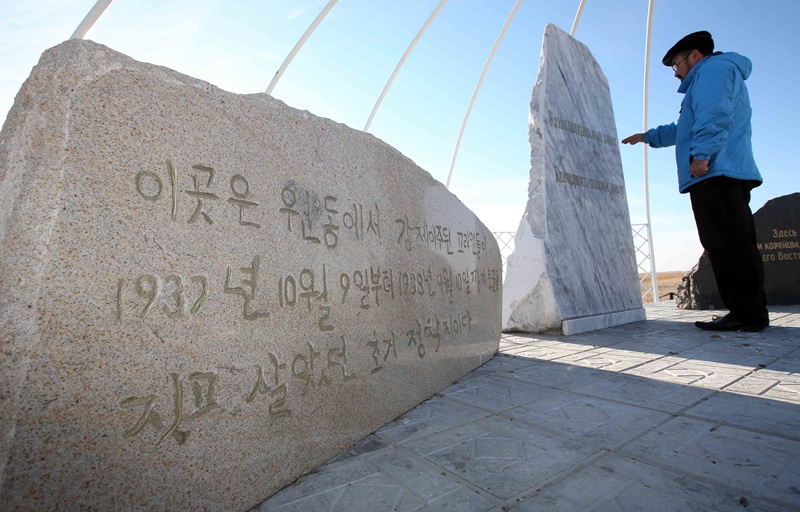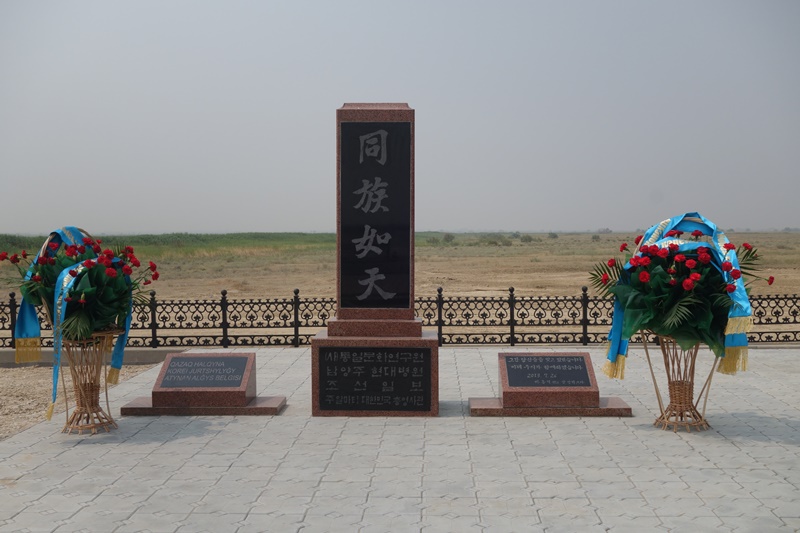
The inscription on a rock (left) informs visitors that Bastobe Hill in the town of Ushtobe of the Almaty Region of Kazakhstan was where the first ethnic Koreans in Central Asia settled. A park commemorating these Koreans and reflecting their struggles will be established in this area. (Yonhap News)
A park commemorating ethnic Koreans who were forcibly resettled from Russian Far East to Central Asia will be established in Kazakhstan, specifically on Bastobe Hill in the town of Ushtobe in the Almaty Region.
The hill is historically significant for ethnic Koreans in Central Asia, who are also called Goryeoin. In 1937, about 170,000 ethnic Koreans were forced to evacuate Primorsky Krai in the Soviet Union due to the segregationist and discriminatory policies of the communist regime under Josef Stalin. Bastobe Hill is where the first Goryeoin to settle in Central Asia arrived.
According to residents of nearby villages, the Goryeoin at the time dug frozen earth with their bare hands to survive, cultivating the desolate land under the harsh cold of around minus 40 Celsius. About 20,000 of them perished in this environment.

A monument bears the inscription "Dongjok yeochoen (同族如天)," or "Serve (your) compatriots like heaven" in Korean. This was erected on July 26 this year on Bastobe Hill in the Kazak town of Ushtobe. (Center for Cultural Unification Studies)
Also unveiled at the park was a monument with the inscription "Dongjok yeocheon (同族如天)," or "Serve (your) compatriots like heaven" in Korean.
The Center for Cultural Unification Studies (CCUS), The Chosun Ilbo and Hyundai Hospital sponsored and helped build the park for ten years.
CCUS President Ra Jong-eok said, "We plan to install sculptures next year (at the park) that commemorate Korean independence activists in Central Asia."
"We will continue to develop and promote this place as a historical site to share the region's historical significance. We will also share the increased amity between the two nations as well as the sad history of ethnic Koreans (in Central Asia)."
hyunw54@korea.kr